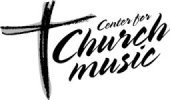Center For Church Music, Songs & Hymns

Browse Hymns:
Browse by:
We Invite You To Sing
To sing with us, 1) Click on the music thumbnail icon to view the sheet music (you don't have to read music!), and 2) Engage the audio file by clicking on the Real audio or Mp3 file.
Find Songs And Hymns
Facts:
- Lyricist: Latin Hymn, attr. to John Francis Wade
Lyrics Date: 1751
Translator: Frederick Oakeley, 1841
Translator: William Thomas Brooke, 1884
Key: G
Theme: Christmas
- Composer: John Stainer
Music Date: 1887
Tune Name: WYCLIFF
Meter: 8.7.8.7.
Scripture: Romans 12:1,2
Devotional:
Pilgrimage played an important role in ancient Jewish faith, with Jews traveling to Jerusalem for the Passover each spring. In fact, our only glimpse of Jesus' childhood occurs during a pilgrimage-when the twelve-year-old Messiah visited the temple during a Passover visit to Jerusalem.
As Christians in the twenty-first century, we don't speak much of pilgrimage today. Yet in the advent season, and all through the year, we're invited to take a religious journey-to reflect on the mirac...
See More
Pilgrimage played an important role in ancient Jewish faith, with Jews traveling to Jerusalem for the Passover each spring. In fact, our only glimpse of Jesus' childhood occurs during a pilgrimage-when the twelve-year-old Messiah visited the temple during a Passover visit to Jerusalem.
As Christians in the twenty-first century, we don't speak much of pilgrimage today. Yet in the advent season, and all through the year, we're invited to take a religious journey-to reflect on the miracle of God becoming man, and to recommit ourselves to following him.
During this Christmas season, many will sing the famous words of "O Come, All Ye Faithful." In churches across the globe, millions will join in the words, "O come let us adore him," celebrating the birth of our Savior, Jesus Christ.
Yet how many will really trust in Jesus and follow him day by day? How many will be faithful in every aspect of their lives? How many will adore him through their words and actions-at work, at home, on the road, and at the mall?
As you make plans to journey to loved ones this holiday season, think about your faith journey as well. Where has your faith been lately? And where do you want it to go? In this advent season, God still bids you to "Come." And when you respond with a heart that responds to his call, you'll be bringing the Christ-child your sweetest adoration of all.
See Less
Hymn Story:
The original four verses of "O Come All Ye Faithful" were discovered in an eighteenth century Jacobean manuscript with John Francis Wade's signature. At one time historians believed that Wade had simply discovered an ancient hymn by an unknown author, possibly St. Bonaventura, a thirteenth century Italian scholar. Further examination, however, has led many to believe that Wade wrote both the words and music of this hymn himself.
Wade, a Catholic who sympathized with the Jacobite caus...
See More
The original four verses of "O Come All Ye Faithful" were discovered in an eighteenth century Jacobean manuscript with John Francis Wade's signature. At one time historians believed that Wade had simply discovered an ancient hymn by an unknown author, possibly St. Bonaventura, a thirteenth century Italian scholar. Further examination, however, has led many to believe that Wade wrote both the words and music of this hymn himself.
Wade, a Catholic who sympathized with the Jacobite cause in England, created several masses that promoted the return of exiled Catholics to the country of England. Interestingly, the "Jacobite manuscript" including an original copy of "O Come All Ye Faithful," was one such mass. Printed in the margins of the song, Wade had called on faithful Jacobites to come together and rally against the English throne.
Though most songbooks include only four verses to this hymn, four other verses exist, three of them possibly written by Abbe' Etienne Jean Francois Borderies in 1794. One other verse has been discovered, but its origins are unknown.
As exiled Catholics returned to England, they took Wade's hymn with them. And in 1841, the words were translated into English. A copy of Wade's hymn was also sent to the Portuguese chapel in London, where the Duke of Leeds heard it and introduced it to a group of concert singers he conducted. From there it circled the globe, becoming one of our most well loved Christmas hymns.

